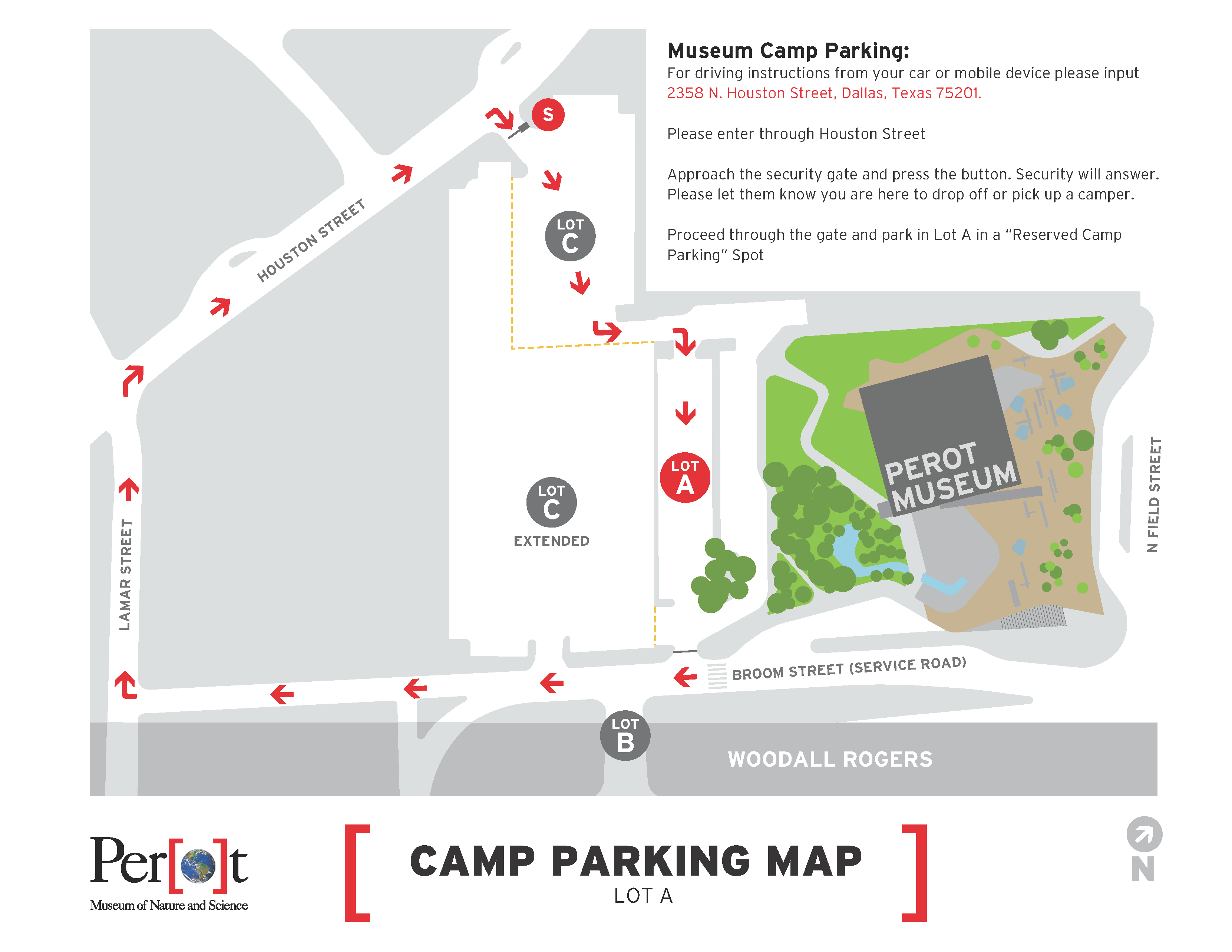Registered camper information

Thank you for registering for Discovery Camp! We are so excited to have your camper join us as we bring science to life. Please read through the items outlined below to ensure you have everything ready to make this adventure one your camper will never forget.
General Reminders
- Snacks/Lunch: We are unable to provide any food, so please remember to send your child with snacks and a lunch.
- Drop-off/Pickup: Please make sure the person picking up your child(ren) is on the approved list and can provide a photo ID.
- Clothing: If your child is in first grade and below, please be sure to send them with a change of clothes.
- Policies and Procedures: Please read our Camp Policies and Procedures carefully prior to the first day of camp for all other important information regarding lunches, rules, emergency procedures, etc.
- Camp FAQs: Visit our Camp FAQs to review some of the most frequently asked questions.
- Contact Laura Bowles at laura.bowles@perotmuseum.org with any questions.
Drop-Off and Pickup
Please check your camp registration page for drop-off and pickup times and instructions.
Only campers and staff will be allowed in the classrooms. Sign In and Sign Out with ID checks will be conducted at the entrance on Houston Street.
Adults picking up campers must be on the approved list to pick up and they must show a picture ID each day.
Safety - Modifications for In-Person Camp Programming
Please check back here for any updates to our procedures.
The health and safety of our guests is always our first priority. Discovery Camp has extensive health and safety procedures and staff training in place every year. In light of COVID-19, Discovery Camp has updated these procedures extensively, informed by current recommendations from local, state, federal health officials, agencies, and authorities, including CDC guidelines.
Health Monitoring
- Do not send your child to camp if they have any symptoms associated with the COVID-19 infection, a confirmed case of the COVID-19 infection, a suspected case of the COVID-19 infection, or traveled internationally within the last 14 days.
- If a camper becomes ill with symptoms associated with the COVID-19 infection during the camp day, the Camp Manager will contact their parent or guardian and the child and any other camper belonging to that family will be sent home with their parent or guardian.
- If a camper is sent home with symptoms associated with the COVID-19 infection and that camper does not get evaluated by a medical professional and tested for COVID-19, the child is assumed to have COVID-19 and the child cannot return to camp until they have met the following criteria:at least 3 days (72 hours) have passed since recovery (resolution of fever above 100.4 without the use of fever-reducing medications); and the child has improvement in symptoms; and at least 14 days have passed since symptoms first appeared.
- If a camper is sent home with symptoms associated with the COVID-19 infection and that camper does get evaluated by a medical professional and tests positive for COVID-19, the child cannot return to camp until they have met the following criteria:at least 3 days (72 hours) have passes since recovery (resolution of fever above 100.4 without the use of fever-reducing medications); and the child has improvement in symptoms; and at least 14 days have passed since symptoms first appeared.
- If we are notified of a camper, or staff member with confirmed case of the COVID-19 infection, the Camp Manager will notify families that day via email. According to the State Texas Health Protocols the following are possible symptoms of COVID-19:
- Cough
- Shortness of breath or difficulty breathing
- Chills
- Repeated shaking with chills
- Muscle pain
- Headache
- Sore Throat
- Loss of taste or smell
- Diarrhea
- Feeling feverish or a measured temperature greater than or equal to 100.4 degrees Fahrenheit.
Cleaning and Sanitization
- Campers will wash or sanitize their hands often throughout the day especially before returning to the classroom from exhibit hall tours or bathroom trips.
- The museum has installed more hand sanitizing stations and has heightened cleaning protocols, including frequent environmental cleaning and disinfection of “high-touch” door handles, elevators, and restrooms.
- Classrooms will be cleaned and sanitized regularly.



